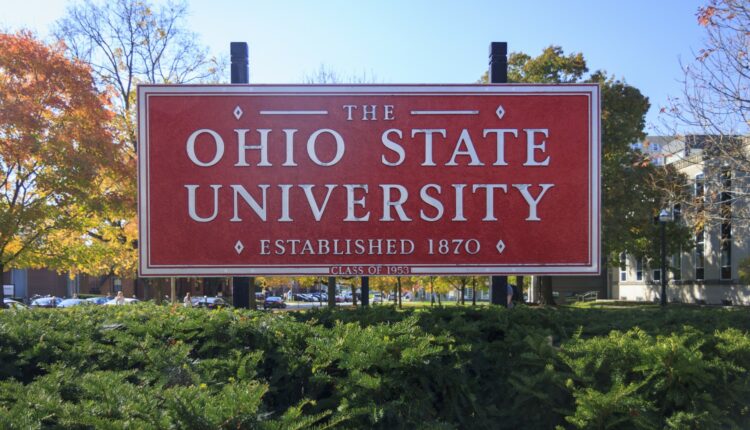Ohio State University: Peace Corps marked 60th anniversary by recognizing volunteers with Ohio State ties
At the Peace Corps 60th Anniversary Commemorative Event, hosted April 6-7 by The Ohio State University at Sullivant Hall on the Columbus campus, volunteers reflected on their experiences serving in countries around the world.
Established in March 1961 by President John F. Kennedy’s executive order, the Peace Corps is an independent federal agency that deploys volunteers in developing nations to assist with education, health care, agriculture and economic development. The Peace Corps officially marked its 60th anniversary in 2021, but the COVID-19 pandemic delayed celebrations until this year, said National Peace Corps Association President and CEO Glenn Blumhorst.
“Thank you for recognizing the Peace Corps for young students and others to really see a different way of life and career after their college studies,” Blumhorst said of Ohio State’s commemoration.
The event included a screening and discussion with Alana DeJoseph, producer and director of “A Towering Task: The Story of the Peace Corps,” a documentary about the agency’s history and volunteers’ experiences as global citizens.
“I was impressed to see the different stories from Peace Corps volunteers, and many of them pointing to the fact that they engage in their different locations by improving agriculture, how to protect crops from insects,” said Luis Cañas, director of the CFAES International Programs in Agriculture.
Cañas and Blumhorst recognized Stephan L. Honoré, the first Ohio State student to be accepted into the Peace Corps. Honoré was also the first Ohioan, the first African American and one of the first 27 Peace Corps invitees in the United States in mid-June 1961.
Honoré said in fall 1960, when he was pursuing a master’s degree at Ohio State, he read a notice in the Lantern, the university’s student newspaper, about a group that was forming to study the Peace Corps concept.
“I immediately joined that group, which was called the Peace Corps Council, and the rest is history,” he said. “We organized and studied the concept of a peace corps, and when Kennedy proposed the Peace Corps Act to Congress, we traveled to Washington (D.C.) during spring break to lobby Ohio congressmen and senators to get them to support the idea.”
An Urbana, Ohio, native, Honoré holds a bachelor’s degree in physics and mathematics from Capital University. He said he intended to earn a master’s degree from Ohio State, but after being accepted into the Peace Corps, he journeyed to Colombia, where he served from 1961 to 1963. He worked on numerous rural development projects, helping residents to build roads, aqueducts and community centers, and organizing cooperatives for farmers and fishermen.
Honoré continued his assignment with the Peace Corps when he was hired as the organization’s associate director in the Dominican Republic, where he worked throughout the mid-1960s and met his wife, Flor. His service included helping residents to staff hospitals that cared for the wounded during the Dominican revolution.
After he and his wife returned to the United States in 1968, Honoré earned a law degree from the University of Toledo College of Law and became a professor at Texas Southern University, a Historically Black university. He eventually went into private practice and later became a judge in the Houston courts.
Honoré said serving in the Peace Corps shaped the trajectory of his career and gave him a sense of purpose.
“In short, the Peace Corps changed my life,” he said. “Having these experiences made me who I am.”

